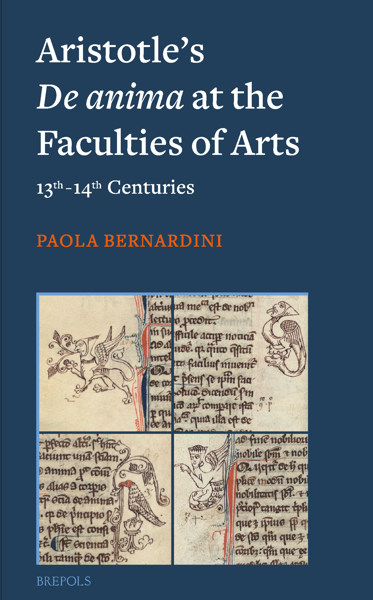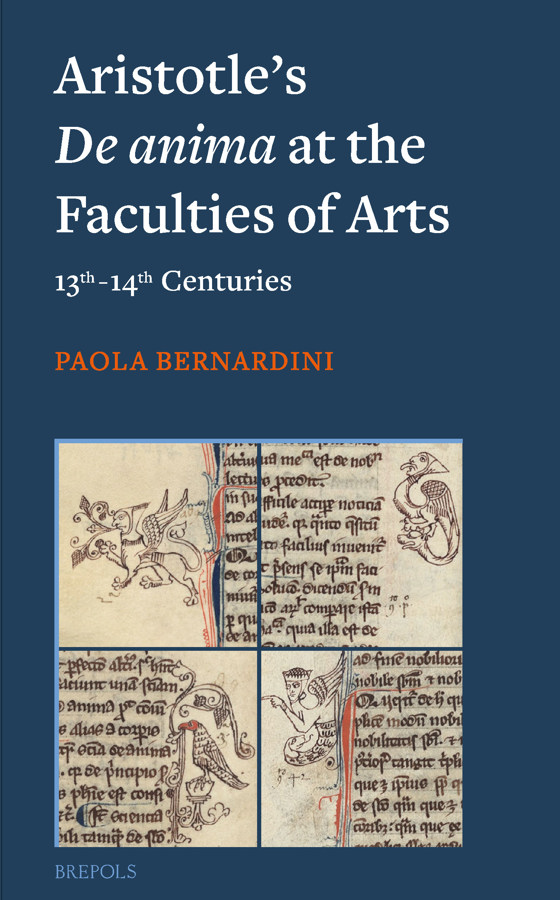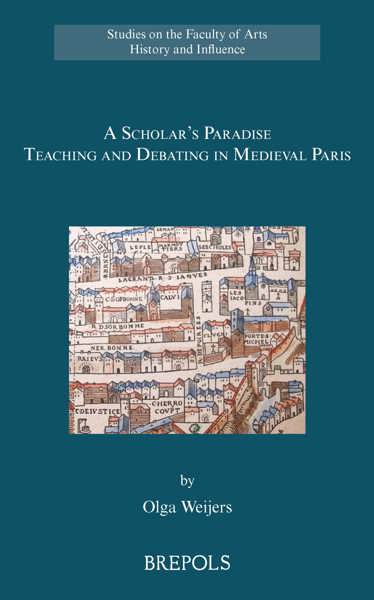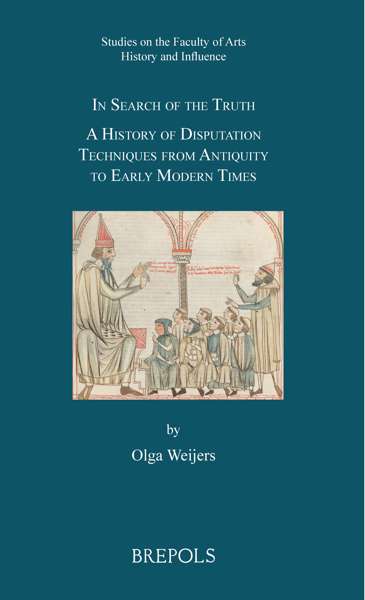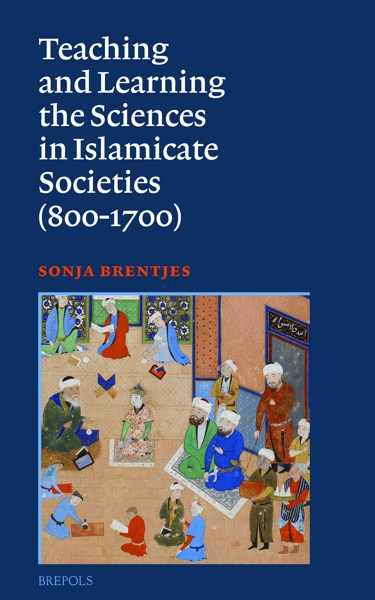
Aristotle’s De anima at the Faculties of Arts (13th-14th Centuries)
Paola Bernardini
- Pages: 211 p.
- Size:127 x 203 mm
- Language(s):English
- Publication Year:2023
- € 50,00 EXCL. VAT RETAIL PRICE
- ISBN: 978-2-503-60656-9
- Paperback
- Available
- € 50,00 EXCL. VAT RETAIL PRICE
- ISBN: 978-2-503-60657-6
- E-book
- Available
This book tells the story of an intellectual adventure: the effort made by Masters of Arts at Medieval Universities to interpret Aristotle’s De anima, along with scientific writings from the Islamic world.
Paola Bernardini (Volterra, 1973) studied Philosophy at the Universities of Siena and Florence. Her main research interest is the History of Medieval Philosophy, especially the early reception of Aristotle’s De anima in the Faculties of Arts (1240-1260) and its manuscript witnesses. She is currently Associate Professor of History of Medieval Philosophy at the Department of Historical Sciences and Cultural Heritage, University of Siena.
This book explores the intersection between the early development of medieval universities and the arrival of Aristotle's works in the Christian West, especially De anima: one of his most famous and obscure writings, straddling the fields of biology and psychology, and devoted to the functions of living beings – including the human being.
The leading figures in this very special meeting of cultures, also involving scientific writings from the Islamic world, are the Masters of Faculties of Arts. From the first half of the 13th century, they embarked on a theoretically very demanding enterprise, namely to restore a complete understanding of De anima; and they accomplished this difficult task by establishing a close – and often polemical – relationship with their more famous colleagues: theologians such as Albert the Great and Thomas Aquinas.
By resorting to the research and teaching methods of their time, the Masters of Arts addressed crucial topics such as the soul/body relationship, sense perception, intellectual knowledge and the special status of the human intellect, mediating, as far as possible, between scientific requirements and those of the Christian faith.
Authors such as Adam of Buckfield, Peter of Spain, Siger of Brabant, John of Jandun and John Buridan, together with other, less famous ones and a small crowd of completely anonymous – yet theoretically no less interesting – scholars, gave rise to a choral narrative that disclosed new philosophical perspectives on man. It is in this intellectual context that the roots of Modern philosophical thought lie.
Preface
Acknowledgements
Chapter 1. The Commentaries on Aristotles De anima. Historical and Philosophical Background
1. Institutions and Places
2. Translations and Sources
3. Commentaries on the De anima: a Unitary Object of Study
4. Dicunt theologi. Theologians and their Influence on Faculties of Arts
5. Secundum medicos: the Discussion of Medical Doctrines in Commentaries on the De anima
Chapter 2. The Human Soul According to Natural Philosophers Perspective (c.12401260/70)
1. Aristotles De anima at the Faculty of Arts
2. Avicennas Influence and the Establishment of the scientia de anima in the Latin West
3. The Definition of the Human Soul According to the Earliest Masters of Arts
4. The Debate on the Faculties of the Human Soul
5. The Soul-Body Relationship
6. Senses and Sensation
7. The Doctrine of the Intellect
Chapter 3. The Human Soul at Faculties of Arts between Orthodoxy and Heresy (c.12601277). Siger of Brabant and His Milieu
1. A Troubled Historiographical Issue
2. Sigers Quaestiones in tertium de anima (c.1265)
3. Sigers De anima intellectiva (1273-1274)
4. The Appearance of the Thesis of the Unicity of the Intellect in Faculties of Arts. The Influence of Albert the Great and Thomas Aquinas
5. Orthodoxy and Heterodoxy at the Faculty of Arts: the Debate on the Specific Human Difference and the Unicity of the Intellect
6. A Matter of Averroism: Some Historiographical Remarks
Chapter 4. After 1270-1277. Doctrinal Developments in Commentaries on De anima
1. A Plurality of Different Intellectual Trajectories
2. The Origins of this Plurality: Sources, Censure, and Philosophical-Theological Debates
3. The Evolution of Some Philosophical Patterns
Bibliography
Index
